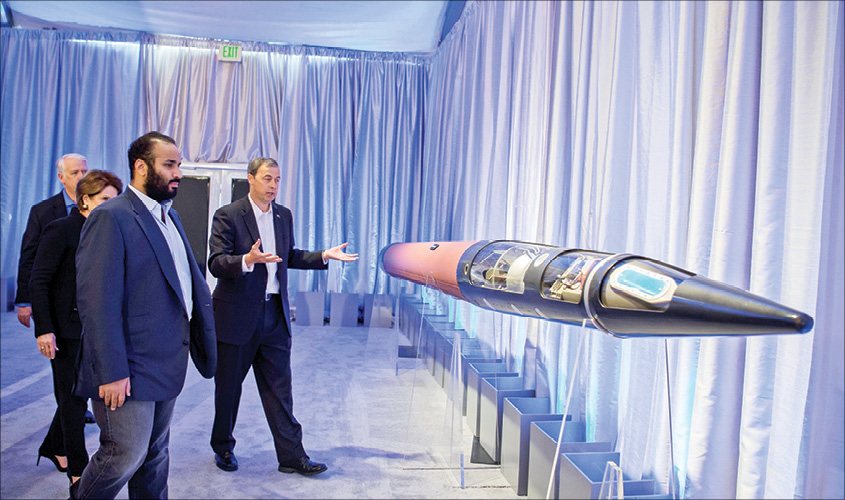Saudi Arabia no longer seems to be the extreme society it had been for decades, and this writer’s wish to visit the country was kindled, again, as he read the news about the new Crown Prince’s desire and actions to get his country into the modern era by 2020, known as Saudi Arabia’s Vision 2020.
The Saudi Air’s non-stop flight from the United States to Riyadh was on a comfortable and new Boeing 777 plane. All the crew was non-Arabian. The service and food were good, even though alcohol was not served.
Riyadh is a new and very modern city with modern buildings and highways, mostly built by the Americans.
Before going to Saudi Arabia, one had heard that Saudi women could not go out even for shopping without a male companion and all foreign women had to cover their bare heads and legs. But one was pleasantly surprised to see Saudi women walking without male companions and non-Saudi Arabian women roaming around in western dresses and without headgear—a striking departure from past traditions. Women are already being allowed to watch football matches without male companions. From June, they will be allowed to drive as well. Saudi Arabia now has the first woman deputy minister in the Cabinet, who is in charge of labour matters and social welfare. Yoga classes have started without opposition. Once, at a five-star in Islamabad, Pakistan, there was a note that alcohol could be served only to non-Muslim non-Pakistanis in their rooms.
However, at the hotel in Riyadh, in the mini bar in the room, there were two bottles of beer. One person was even drinking beer at the poolside. And this was not an “all non-Arabian hotel”, as a number of Arabians were also staying there.
That change is taking place in Saudi Arabia became all the more obvious to this writer during a private meeting with a person considered close to the Crown Prince. One was told that there is increasing realisation that Islamic fundamentalism was dangerous for both Saudi Arabia and the world. When this writer pointed out that both the US and India were concerned about Saudis financing madrasas around the world, madrasas that were the main source of radicalising young Muslims and producing terrorists, the person asserted that Saudi Arabia had stopped financing all foreign organisations, including the so-called charitable ones and madrasas. When this writer expressed his doubts, the person told him that if he came across any such financing, he should advise him and he would make sure that it was stopped immediately. The person mentioned that when the current king, Salman bin Abdulaziz Al Saud, was a state’s governor, he had visited India and was impressed with India’s diversity and tolerance. The person lauded the growing relationship and cooperation between the two countries, especially after Prime Minister Narendra Modi’s visit to Saudi Arabia.
The Crown Prince of Saudi Arabia, Mohammad bin Salman, in his interview published in the Atlantic, US, has even stated that Israelis have a right to live in their own land, which is a de facto recognition of Israel as a country. Such a public stand in the past by a Muslim country, especially by Saudi Arabia, was unthinkable. What was a bigger surprise was that no one denounced that statement. In his interview, he also stated that his country would not follow Wahhabism.
In Riyadh, the country’s national museum has four main sections: i) pre-historic, (ii) pre-Islamic, (iii) Islamic, and (iv) modern periods. It was interesting to witness the museum showcasing Saudi Arabia’s pre-Islamic culture and achievements with great pride. There were a number of Saudi women at the museum without male companions.
In Riyadh, one does not see any beggar, however, there were some young men standing at the traffic signals. At the red lights, they would clean car windshields for money. The weather was pleasant, in the low 20 degrees during day and colder at night. The TVs at the hotel as well as in the lounge at the Riyadh airport were showing Western and Indian shows and movies including dances and romantic scenes; only kissing scenes are censored. On Valentine’s Day last year, a well-known Muslim cleric had tweeted about the day being a sign of human love. Had he said so previously, he would have been beheaded.
The Saudi Crown Prince appears sincere in his reformist moves. One hopes that while he takes the country into the modern times, he will also aim for a democratic system.

